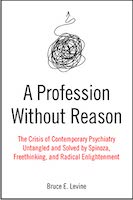What Happened After a Nation Methodically Murdered Its Schizophrenics? Rethinking Mental Illness and Its Heritability
When we begin to question, we discover that (1) scientifically flawed research has been used to promote ideas around mental illness and its heritability, and (2) instead of focusing on nature vs. nurture causes of mental illness, it’s time to consider whether certain phenomena are really symptoms of pathology or instead are inextricable aspects of our humanity.
How 7 Historic Figures Overcame Depression without Doctors
While Sylvia Plath and Ernest Hemingway received extensive medical treatment for depression but tragically committed suicide, other famously depressed people—including Abraham Lincoln, William James, Georgia O’Keeffe, Sigmund Freud, William Tecumseh Sherman, Franz Kafka, and the Buddha—have taken different paths. Did those luminaries who took alternative paths and recovered really have the symptoms of major depression, […]
How 7 Historic Figures Overcame Depression without Doctors
While Sylvia Plath and Ernest Hemingway received extensive medical treatment for depression but tragically committed suicide, other famously depressed people—including Abraham Lincoln, William James, Georgia O’Keeffe, Sigmund Freud, William Tecumseh Sherman, Franz Kafka, and the Buddha—have taken different paths. Did those luminaries who took alternative paths and recovered really have the symptoms of major depression, […]
Behavior Modification and an Authoritarian Society
The corporatization of society requires a population that accepts control by authorities, and so when psychologists and psychiatrists began providing techniques that could control people, the corporatocracy embraced mental health professionals.
Does TV Actually Brainwash Americans?
Historically, television viewing has been used by various authorities to quiet potentially disruptive people—from kids, to psychiatric inpatients, to prison inmates. In 1992, Newsweek (“Hooking Up at the Big House”) reported, “Faced with severe overcrowding and limited budgets for rehabilitation and counseling, more and more prison officials are using TV to keep inmates quiet.” Joe […]
How TV Zombifies and Pacifies Us and Subverts Democracy
Historically, television viewing has been used by various authorities to quiet potentially disruptive people—from kids, to psychiatric inpatients, to prison inmates. In 1992, Newsweek (“Hooking Up at the Big House”) reported, “Faced with severe overcrowding and limited budgets for rehabilitation and counseling, more and more prison officials are using TV to keep inmates quiet.” Joe […]
Behavior Modification and an Authoritarian Society
The corporatization of society requires a population that accepts control by authorities, and so when psychologists and psychiatrists began providing techniques that could control people, the corporatocracy embraced mental health professionals.
How Psychologists Subvert Democratic Movements: A Talk at the 2012 Psychologists for Social Responsibility Conference
By the 1980s, as a clinical psychology graduate student, it had become apparent to me that the psychology profession was increasingly about meeting the needs of the “power structure” to maintain the status quo so as to gain social position, prestige, and other rewards for psychologists. The academic psychology that I entered as a psychology […]
How Psychologists Subvert Democratic Movements: A Talk at the 2012 Psychologists for Social Responsibility Conference
By the 1980s, as a clinical psychology graduate student, it had become apparent to me that the psychology profession was increasingly about meeting the needs of the “power structure” to maintain the status quo so as to gain social position, prestige, and other rewards for psychologists. The Backward March of Psychologists The academic psychology that […]
Voting—Transcending the Wedge Issue That Divides Democracy Activists
Many nonvoting democracy activists argue that participating in U.S. national elections only maintains the illusion of democracy, and so voting can become a wedge issue that undermines solidarity among voting and nonvoting activists on democracy battlefields beyond electoral politics.




